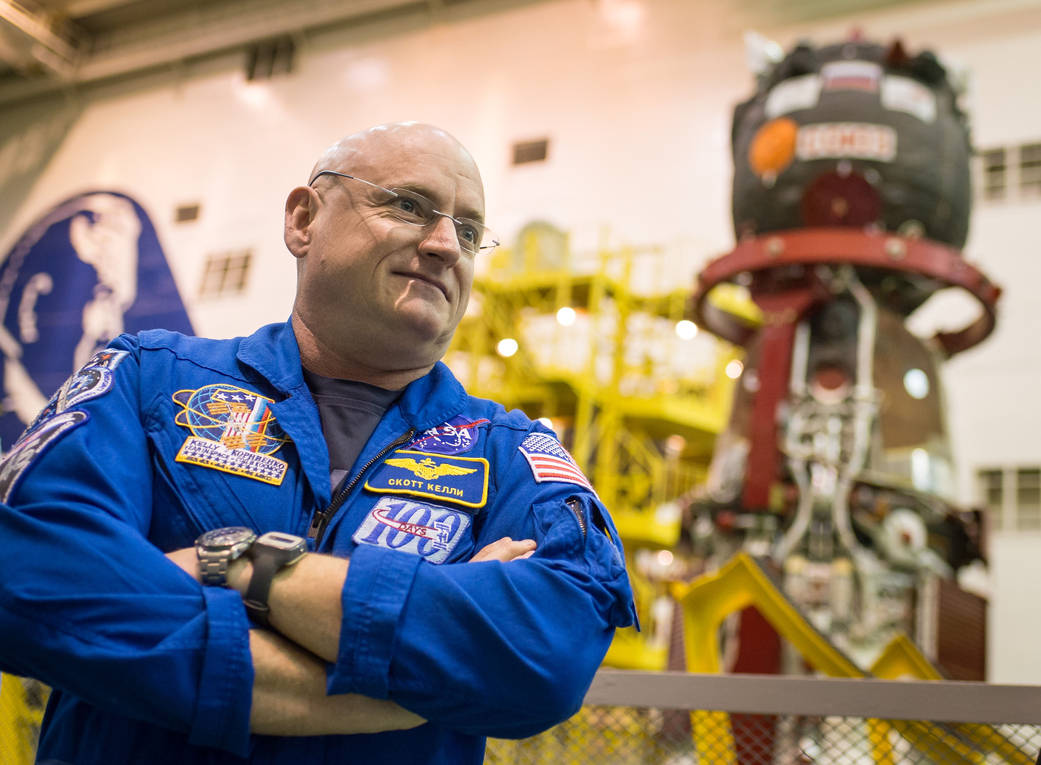
You’d think it would be hard to get sick in space. There is no part of your body the medics wouldn’t have turned inside out looking for problems; you’d be placed in medical quarantine for days before launch; and once you did take off, well, goodbye Earth, with all its colds and flus and walking pneumonias. The bugs are down there and you’re up here.
But that’s not the way things work. Bacteria and viruses adore the environment of a spacecraft: it’s warm, it’s sealed, it’s climate-controlled, and best of all it’s full of people who have nowhere to go and no way to avoid sharing any stray germs they might have brought with them.
That’s especially true aboard the International Space Station (ISS), where crews rotate in and out and can stay for many months at a time, and where residents’ immune systems—flummoxed by long-term exposure to zero-g—are unable to function as they should. Now, NASA is taking an important step toward solving these problems, with an imaginative study of year-in-space marathoner Scott Kelly and his twin brother Mark, a retired astronaut. The cutting-edge, space-age tool that will be central to the work? The ordinary flu vaccine.
The Kelly brothers’ immune systems had already been studied in the run-up to Scott’s launch last March, and both men were certified fit. But they should be slowly diverging, and it is Scott who will be having problems. In space, some of the immune system’s billions of cells begin to change in shape and function, especially the critical T-cells — and none of it is for the better.
“There is suppression of T-cell activation pathways,” says Dr. Emmanuel Mignot, an immune system specialist and one of the year-in-space mission’s medical investigators. “They are the generals that coordinate the entire immune response.”
Making things worse, while the ISS is hardly germ-free, it’s a lot more antiseptic than Earth is, and that means the body can get forgetful, unlearning some of the immunities it’s acquired over the years. “The immune system needs to be challenged,” says Mignot. If it isn’t, it grows slack.
The experiment that will help study all of this began a few months before Scott even left Earth, when both brothers received a common trivalent flu vaccine—one that is formulated to protect against three strains of the virus. Blood was drawn from both men seven days later, which is typically the point at which the immune response peaks and the greatest number of cells that have been mustered to respond to the vaccine are present.
This coming November, as flu season is getting underway on Earth, both brothers will be vaccinated again—Scott in space and Mark on the ground—and more blood will be drawn. Scott’s sample will be frozen until it can be returned to Earth aboard one of the unmanned, round-trip cargo runs flown by the SpaceX Dragon. There will be a third and final round of vaccines and blood draws a year from November.
In all of the samples, Mignot will be scrutinizing the brothers’ twin immune responses in ways that haven’t been possible before. “We’ll be using a new technique that recognizes just pieces of the virus,” he says. “It’s quite sophisticated; we’ll have ideas both of the strength and qualitative nature of the immune response.”
Mignot and the other NASA researchers will be looking not just at how Scott’s immune system is changed by his time in space, but how well it recovers once he’s back on Earth. The results will have implications that go beyond the ISS.
Bad as an illness would be aboard the station, the astronauts are always only hours away from climbing aboard their attached Soyuz spacecraft and coming home. During a long-term mission to Mars—when an emergency return would take at least eight months—even a comparatively minor illness could present a far more serious problem. What’s more, as with most ISS biomedical studies, any basic knowledge about how the body works can have applications not just for astronauts, but for the seven billion other humans who have no plans to leave the Earth.
The Kelly brothers are hardly the only people who will be getting their flu shots this year and next. But over time, if things go well, they could prove to be the most important.
More Must-Reads from TIME
- Donald Trump Is TIME's 2024 Person of the Year
- Why We Chose Trump as Person of the Year
- Is Intermittent Fasting Good or Bad for You?
- The 100 Must-Read Books of 2024
- The 20 Best Christmas TV Episodes
- Column: If Optimism Feels Ridiculous Now, Try Hope
- The Future of Climate Action Is Trade Policy
- Merle Bombardieri Is Helping People Make the Baby Decision
Write to Jeffrey Kluger at jeffrey.kluger@time.com